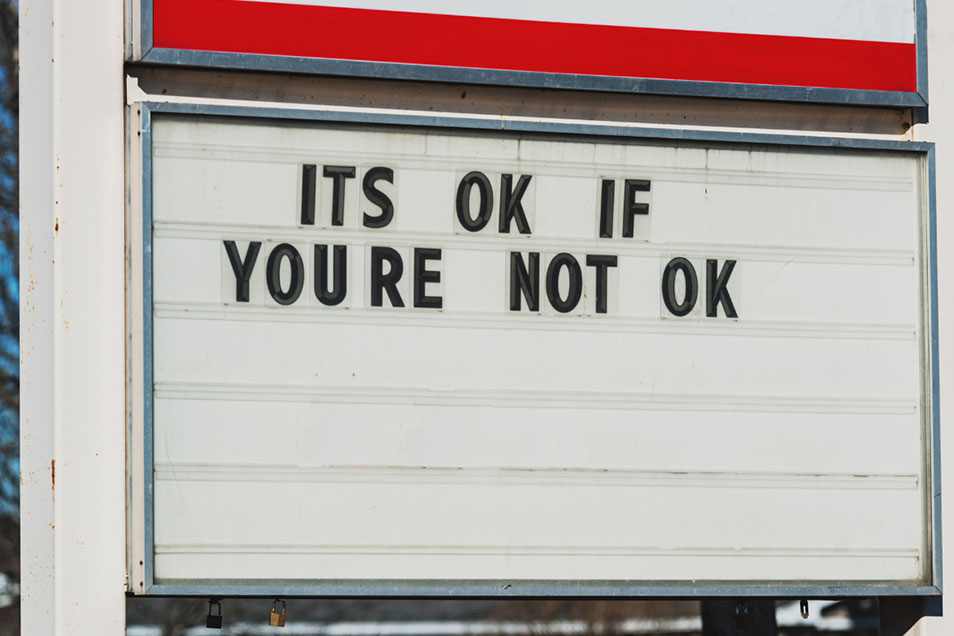It’s OK to Not Be OK During the Holidays
Do the holidays leave you feeling stressed and anxious? You’re not alone.
Too many people, the holidays are a season of stress and sadness. Financial burdens, grief, addiction, and loneliness seem amplified by the sights and sounds of the season. All that good cheer on the outside can’t always soothe the pain on the inside, especially if you don’t have a great support system. In fact, it can make you feel left out and more alone.
It’s OK to not be OK during the holidays. But there are things you can do to make the season a little easier on yourself. Taking care of your health and connecting with others is especially important this time of year.
Tips for a Healthy and Happy Holiday Season
Talk to Someone
If you are feeling sad or stressed about the holidays, reach out to somebody you trust to talk to them. Sometimes, all we need for some relief is to feel supported, loved, and validated in our difficult feelings. When you are experiencing a tough time in life, the holidays can feel especially lonely. Know that you do not have to deal with your struggles alone. There are people out there who want to hear from you and help you. If you are having thoughts about suicide or hurting yourself, call the National Suicide Prevention Lifeline right now. You can reach them at 1-800-273-8255.
Take Care of Yourself
Your physical health and mental wellbeing are closely intertwined. Oftentimes, when your mental health is struggling, it can be easy to lose the motivation to take care of your physical health. However, taking care of your physical health can be extremely important to your healing. You can take care of yourself by:
- Getting outside. Spending time outdoors is proven to be beneficial to your health and wellbeing.
- Move your body and eat nourishing foods. Exercise and healthy foods aren’t only beneficial to your physical health. They both offer tons of mood-boosting benefits, as well.
- Getting enough sleep. Getting enough high-quality sleep positively affects your physical health, as well as your cognitive and psychological wellbeing.
Set Healthy Boundaries
There is absolutely nothing wrong with saying no. Communicate the boundaries you need to maintain your happiness and wellbeing. You don’t have to attend every social event, go into debt buying everybody a Christmas gift, or hug that Uncle you’ve never met in your life. Just say no to the things that drain you, leaving you feeling stressed, depressed, or burnt out.
Spend Time Doing the Things That Make You Happy
During the holidays, you may feel like you need to be the perfect host or check every activity off your holiday to-do list. Try to squeeze in some fun time in between those gift-wrap and turkey dinner runs. Before you can create a magical holiday season for others, remember you must first fill your cup. Don’t push your hobbies and favorite activities into the background. Make time for the things that make you happy.
Volunteer
Volunteering can be a great way to take your mind off the sad or stressful thoughts you are experiencing this holiday season. Helping others can help you feel less alone and emphasize the importance of your role in this world.
Take a Break
Give yourself a moment to recharge as needed. If you are feeling overwhelmed, burnt out, or as though you are drowning in negative thoughts, take a step away from the things that are draining you of your positivity. This can include your to-do list, social media, and even your family. It is okay to give yourself a day of rest.
Reach Out to a Mental Health Professional
The holidays can be hard for many people. With high expectations, missing loved ones, and the possibility of seasonal depression, there may be moments when you just need to reach out for help. If you feel as though you are drowning in negative emotions this holiday season, talking to a therapist may be just what you need. In therapy, you can learn why you are feeling the way you feel and work with your therapist to find the right treatment for you.
References
https://www.ncbi.nlm.nih.gov/pmc/articles/PMC4204431/
https://www.ncbi.nlm.nih.gov/pmc/articles/PMC5623526/
Keywords: seasonal affective disorder help


